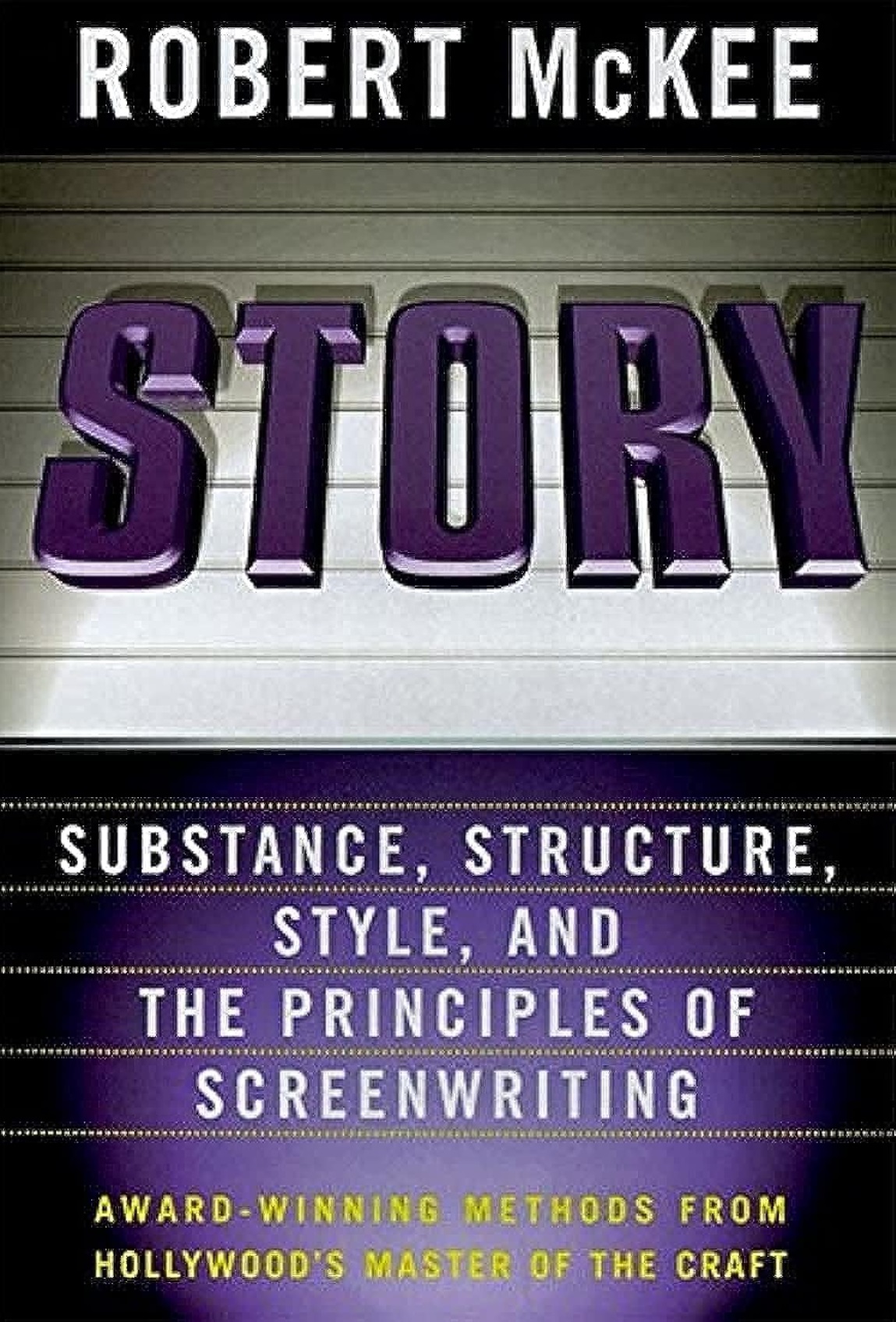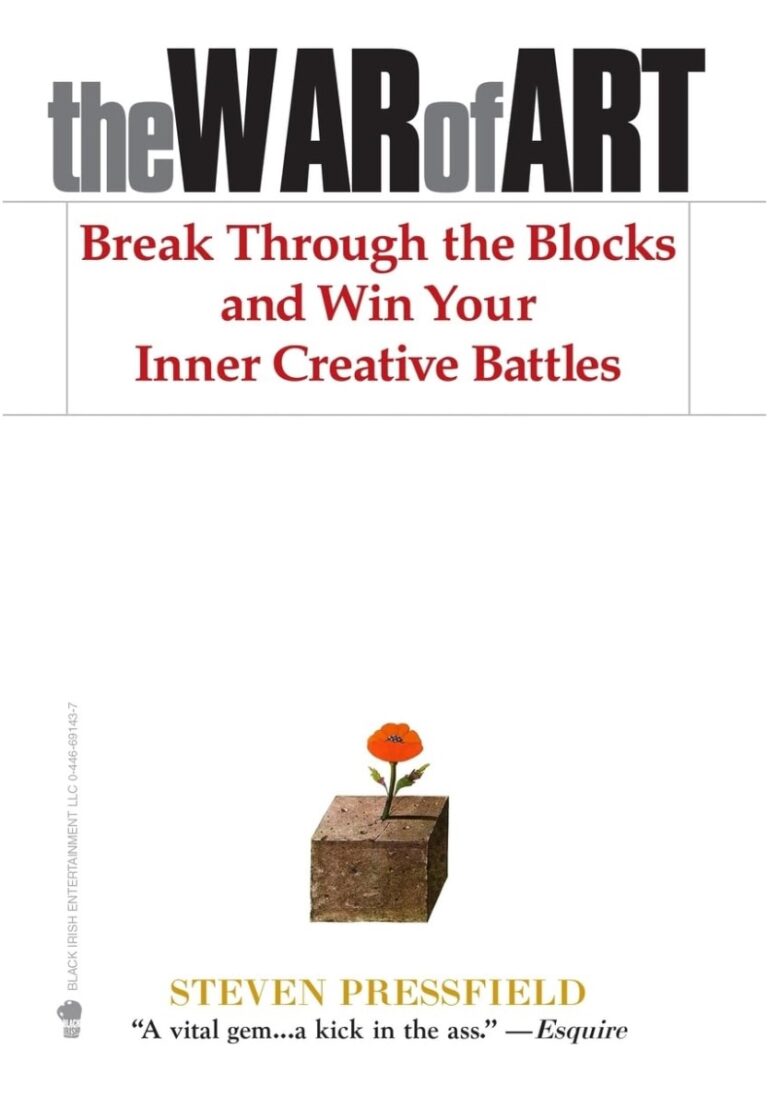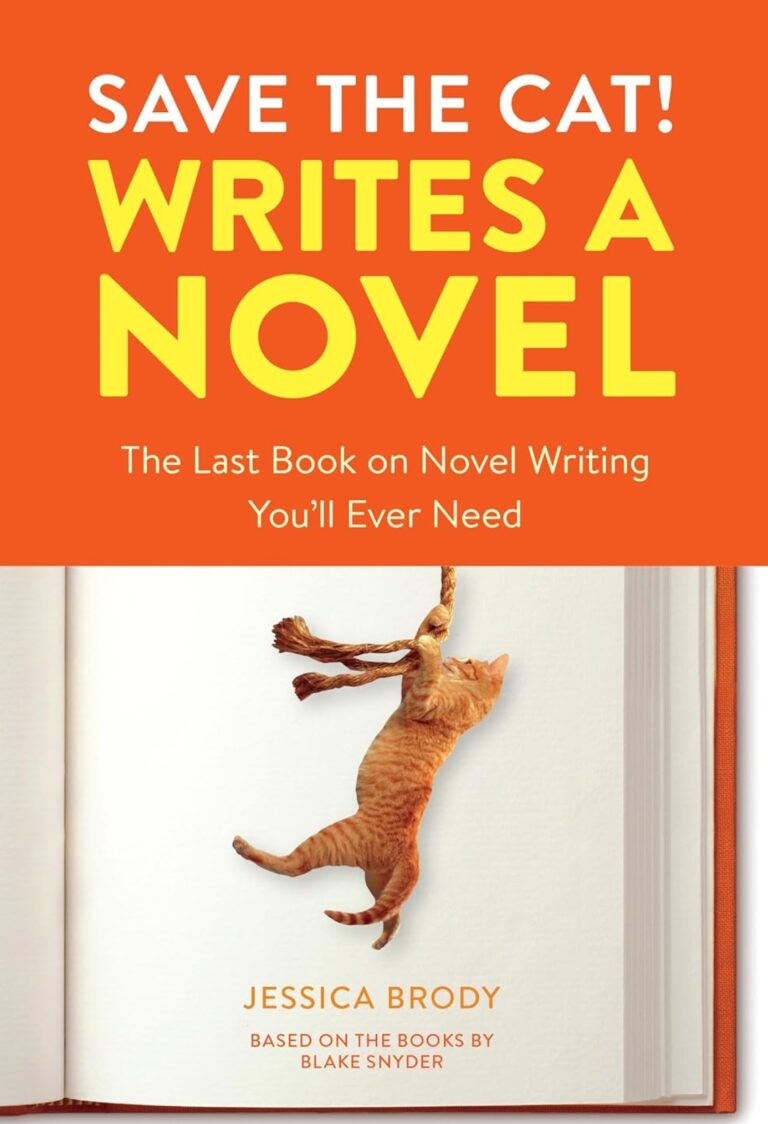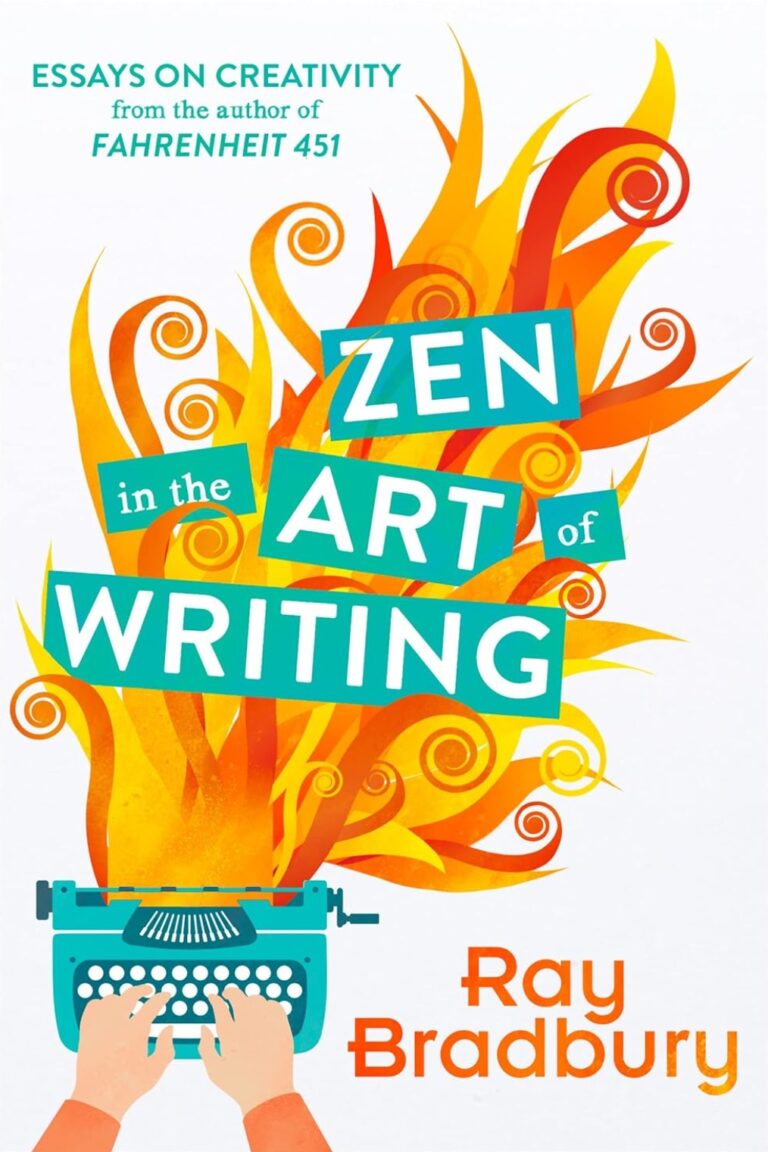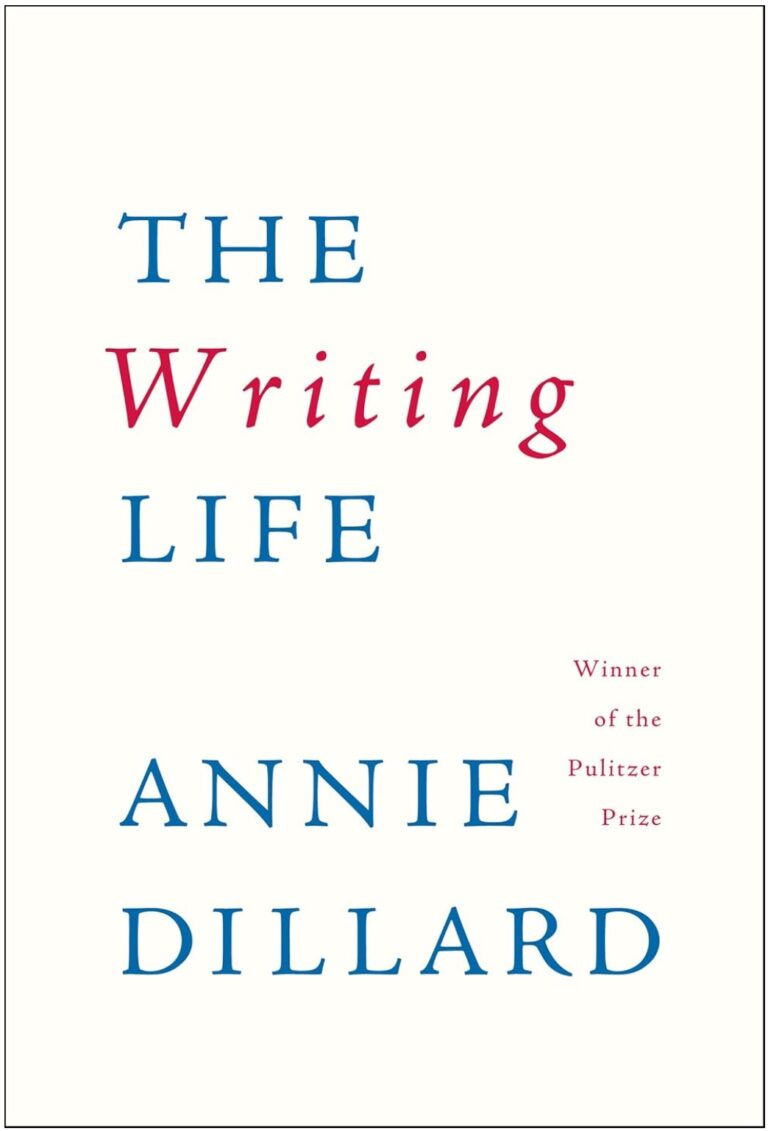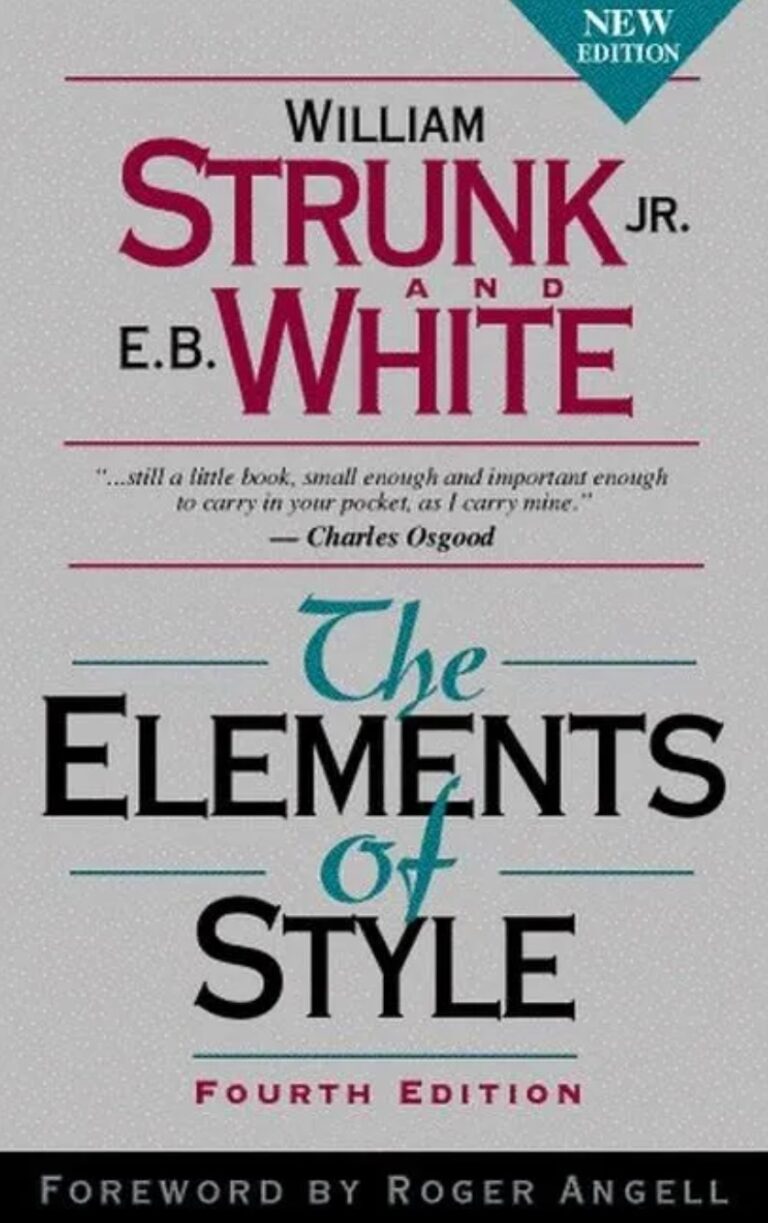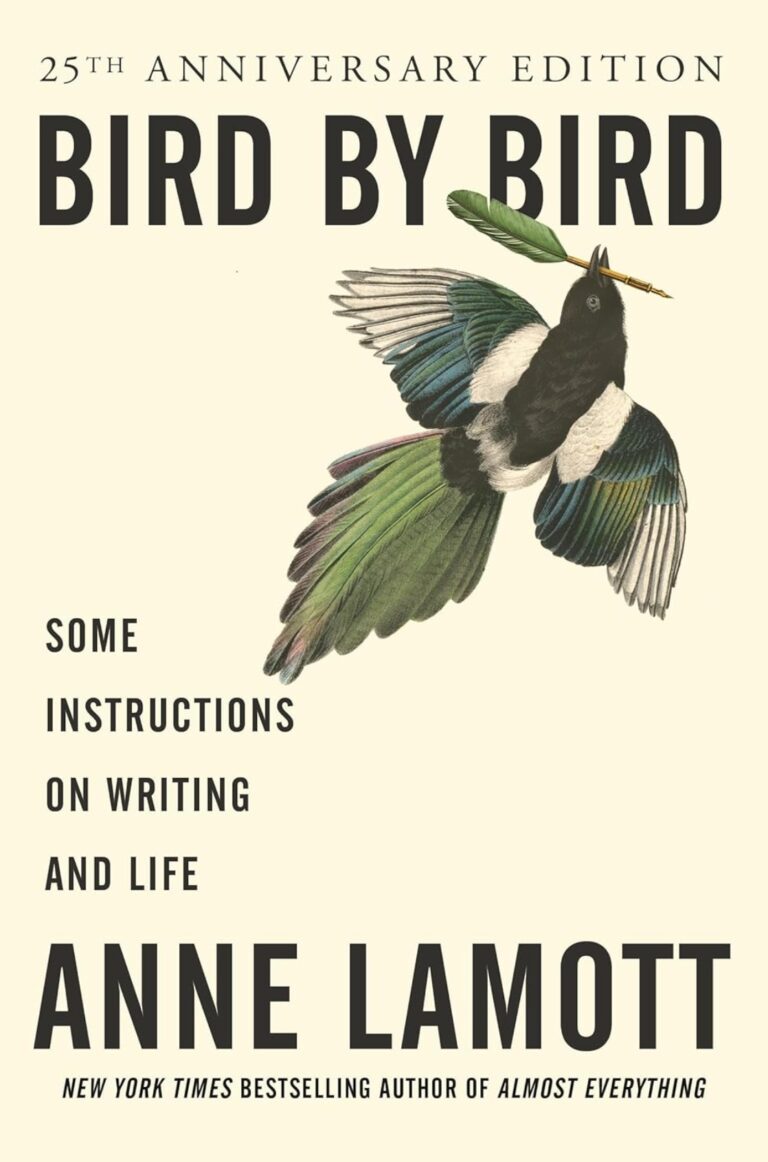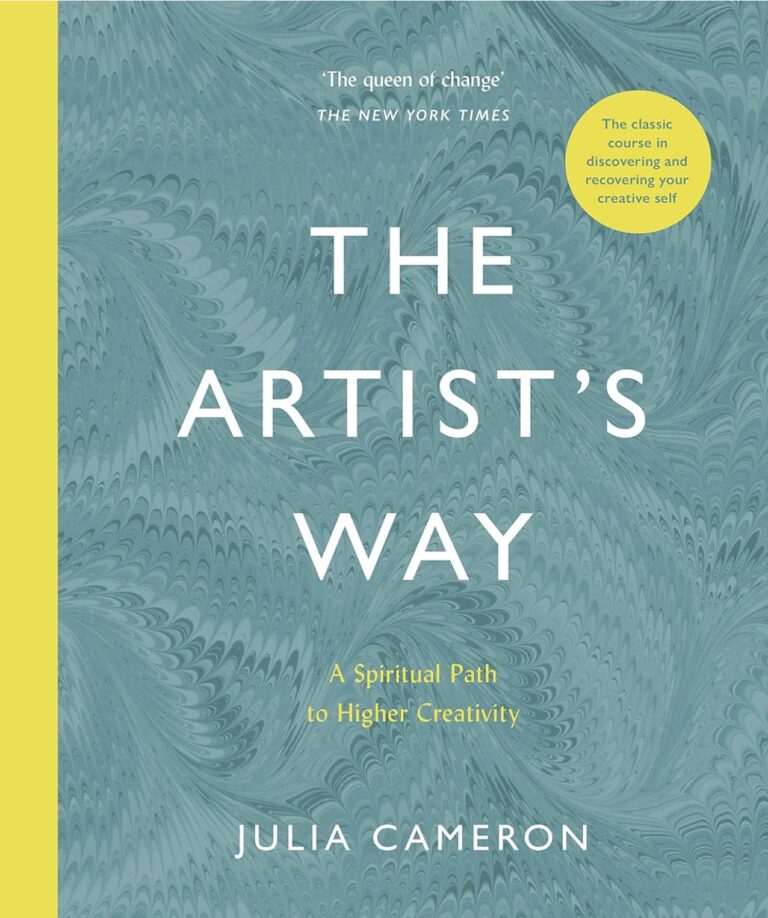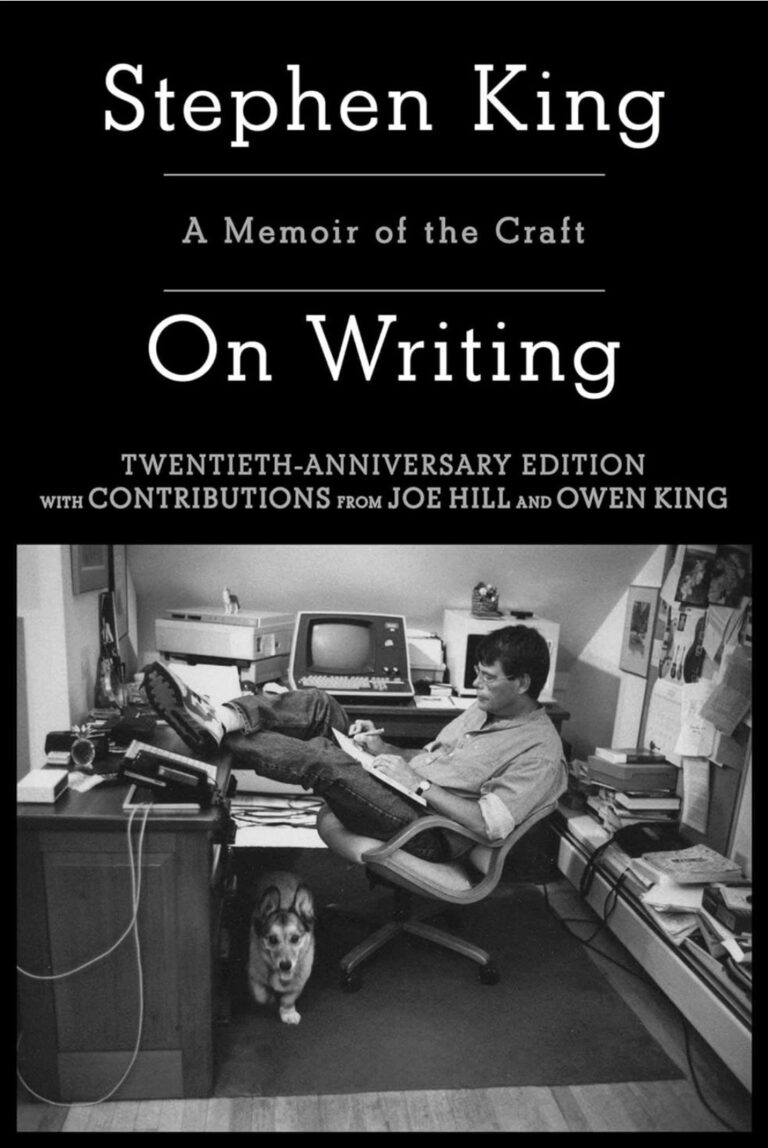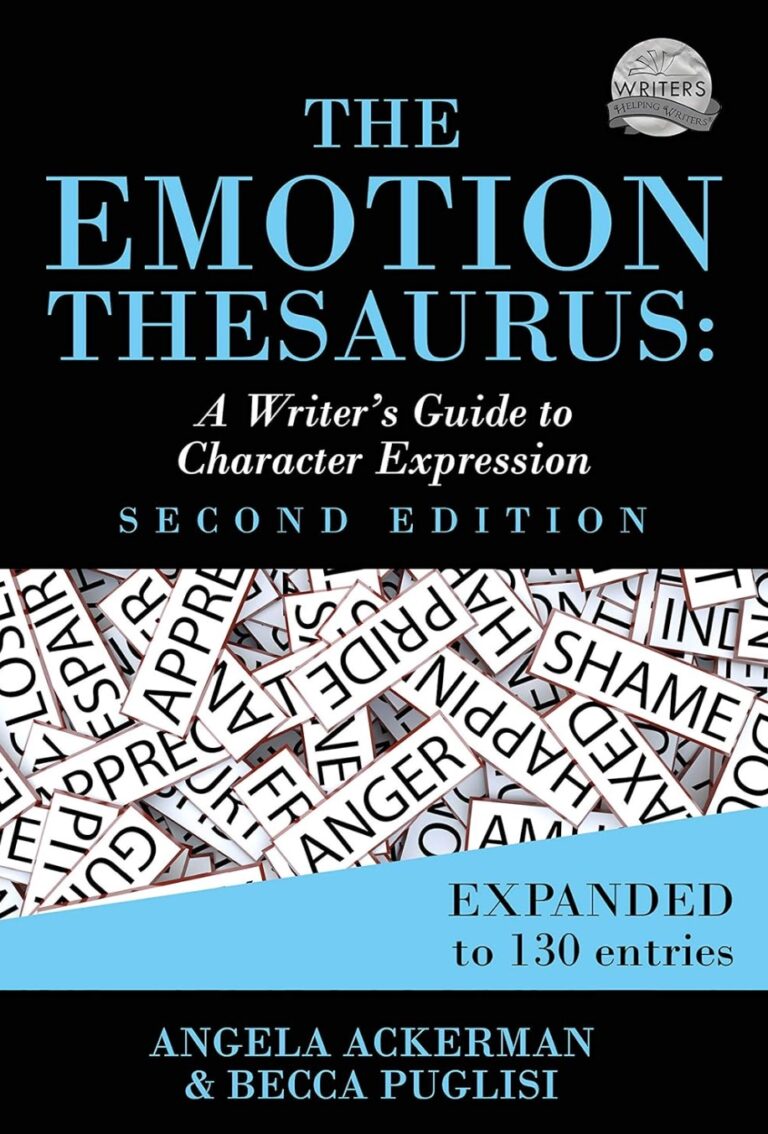Story: Substance, Structure, Style and the Principles of Screenwriting by Robert McKee is a comprehensive guide to the art of storytelling. Known for his popular screenwriting seminars, McKee delves deeply into narrative structure, character development, and emotional resonance.
This book is a must-read for anyone serious about crafting meaningful, impactful stories, whether for film, stage, or literature. With practical advice and philosophical insights, Story serves as both a technical guide and a profound exploration of the power of narrative.
Table of Contents
ToggleIntroduction
Overview of the Book
Story: Substance, Structure, Style and the Principles of Screenwriting by Robert McKee is one of the most influential books on screenwriting, offering comprehensive insights into the art and craft of storytelling.
First published in 1997, Story is a deep dive into narrative structure, character development, and the mechanics of constructing compelling scripts. McKee, a renowned screenwriting lecturer and mentor, uses this book to distill the key principles of storytelling, making it an invaluable resource not only for screenwriters but for all writers who want to improve their narrative skills.
Why This Book is Important for Writers
McKee’s Story goes beyond the basic how-to of screenwriting, exploring the philosophy and purpose of storytelling itself.
His emphasis on story structure and the importance of narrative in human experience elevates the book beyond a technical manual, making it a profound resource for any writer who wants to understand the deeper aspects of storytelling.
By focusing on substance and meaning, McKee encourages writers to craft stories that resonate emotionally with their audience. This book is essential for anyone serious about creating meaningful, impactful narratives, whether for the screen, stage, or page.
Author Background
About the Author
Robert McKee is one of the most respected screenwriting educators in the industry. A former professor of cinema and story structure, McKee has influenced generations of screenwriters, playwrights, and novelists with his highly regarded seminars, known as the “McKee Story Seminar.”
His students have gone on to win numerous awards, including Academy Awards and Emmys. McKee’s insights into narrative structure have made him a go-to figure for anyone serious about mastering the craft of storytelling.
Relevance of the Author’s Experience to the Book
McKee’s background as both an educator and a professional in the film industry lends credibility to his teachings in Story.
His years of experience working with writers of all levels allow him to break down complex concepts into understandable principles that writers can apply directly to their work.
McKee’s unique combination of academic rigor and practical knowledge shines through in the book, making it both insightful and applicable for writers looking to improve their craft.
Book Structure and Style
Layout and Chapter Overview
Story is organized into distinct sections that focus on different aspects of storytelling. McKee begins with a thorough exploration of what makes a great story, breaking down the key components of narrative structure, such as acts, sequences, scenes, and beats.
The middle sections of the book delve into the specifics of character, conflict, and dialogue, offering writers practical advice on how to create complex, emotionally engaging characters and conflicts. The final section covers the stylistic elements of storytelling, such as the use of symbolism, subtext, and genre.
Each chapter is rich with examples from films, plays, and literature, which McKee uses to illustrate his points. These examples serve as case studies, demonstrating how the principles of storytelling can be applied successfully.
McKee’s deep knowledge of film history and storytelling techniques is apparent throughout, making this book not just a guide to screenwriting, but a comprehensive manual for storytelling in any medium.
Writing Style and Tone
McKee’s writing style is authoritative and dense, reflecting his background as an educator. While some may find his tone a bit formal or academic, it is clear that McKee is deeply passionate about the craft of storytelling.
His detailed analysis of narrative elements provides a rich and engaging reading experience for writers willing to invest the time to absorb the material.
Although the content is dense, McKee’s passion for storytelling and his commitment to helping writers succeed is evident, making the book an inspiring read for those dedicated to mastering the craft.
Key Takeaways for Aspiring Writers
Practical Advice and Techniques
One of the most valuable aspects of Story is McKee’s emphasis on structure. He breaks down the three-act structure in a way that is both practical and flexible, allowing writers to adapt it to their own work.
McKee also offers detailed guidance on creating complex characters, crafting compelling dialogue, and building narrative tension. His analysis of conflict, both external and internal, is particularly useful for writers struggling to add depth and tension to their stories.
McKee also emphasizes the importance of creating emotional impact through storytelling. He teaches writers how to elicit emotional responses from their audience by focusing on the human experience and universal truths.
His advice on crafting subtext, using irony, and building meaningful themes helps writers create stories that resonate on a deeper level.
Theoretical Insights and Perspectives
Beyond the technical aspects of writing, McKee offers a philosophical perspective on the role of storytelling in human society.
He argues that storytelling is one of the most powerful ways to convey truth and meaning, and that great stories reflect the complexities of the human condition.
McKee’s insights into the purpose of narrative go beyond surface-level entertainment, encouraging writers to think about the deeper implications of their work.
McKee also stresses that while rules and formulas can be helpful, true artistry in storytelling comes from understanding the principles behind those rules and knowing when to break them.
His emphasis on substance over style encourages writers to prioritize meaning and emotional truth in their work, rather than simply following formulaic structures.
Strengths of the Book
Unique Features and Approaches
One of the key strengths of Story is its comprehensive approach to narrative structure. McKee’s breakdown of scenes, beats, and sequences is detailed and nuanced, offering writers a clear roadmap for constructing their stories.
His use of examples from well-known films and plays is particularly valuable, as it provides concrete illustrations of how the principles he discusses are applied in successful works.
Another unique aspect of the book is McKee’s focus on the deeper meaning behind storytelling. Rather than simply providing a formula for success, McKee encourages writers to explore the emotional and philosophical implications of their stories. This emphasis on substance over style sets Story apart from other screenwriting books that focus primarily on the technical aspects of the craft.
Applicable to Different Levels of Writers
Story is a valuable resource for writers at all levels. Beginners will appreciate McKee’s clear explanations of narrative structure and his detailed breakdown of the elements of storytelling.
More advanced writers will find his philosophical insights into the purpose of storytelling thought-provoking and inspiring. Whether you’re writing your first screenplay or looking to refine your narrative skills, Story offers practical tools and deeper insights that will help you take your writing to the next level.
Areas for Improvement
Potential Weaknesses or Gaps
While Story is an incredibly detailed and comprehensive guide, it may feel overwhelming for some readers, particularly those new to screenwriting. The book is dense with information, and McKee’s formal tone may be intimidating for beginners who prefer a more conversational or accessible writing style.
Additionally, some readers may feel that the book places too much emphasis on traditional narrative structure, potentially discouraging more experimental approaches to storytelling.
Another potential critique is that the book’s focus is primarily on screenwriting, which may limit its applicability for writers working in other mediums, such as novels or short stories.
While many of the principles McKee discusses are universally applicable, writers outside of the screenwriting field may need to adapt the advice to suit their specific needs.
Audience Suitability
Story is best suited for serious writers who are committed to mastering the craft of storytelling. Its detailed analysis of narrative structure and its emphasis on substance over style make it an ideal resource for writers looking to create meaningful, impactful stories.
However, writers who prefer a more relaxed or informal approach to writing may find McKee’s style too rigid or prescriptive.
How This Book Compares to Other Writing Guides
Similar Books in the Genre
Story is often compared to other screenwriting books, such as Save the Cat! by Blake Snyder and The Hero with a Thousand Faces by Joseph Campbell.
While all three books focus on narrative structure, McKee’s approach is more detailed and philosophical than Snyder’s, which offers a more formulaic and accessible guide to screenwriting.
Campbell’s work, on the other hand, focuses on myth and the universal structure of stories, providing a more theoretical framework for storytelling than McKee’s practical advice.
Compared to other screenwriting guides, Story stands out for its depth and rigor. While many books offer tips and tricks for writing a successful screenplay, McKee delves into the heart of storytelling, exploring the emotional and philosophical dimensions of narrative.
This makes Story a more comprehensive and challenging read, but also a more rewarding one for writers looking to create stories with substance and meaning.
Distinguishing Factors
What distinguishes Story from other writing guides is McKee’s emphasis on the deeper meaning behind storytelling.
While many screenwriting books focus on formulas and tricks for writing a successful script, McKee challenges writers to think about the emotional and philosophical implications of their stories.
His insistence on substance over style sets Story apart as a guide for writers who want to create more than just entertaining stories—they want to create meaningful art.
McKee’s use of examples from classic films is another standout feature of the book. By analyzing successful films in detail, McKee provides concrete illustrations of how his principles can be applied in practice.
This makes the book not only a theoretical guide but also a practical one, offering writers a clear roadmap for constructing their own stories.
Real-World Application for Writers
How Writers Can Implement the Advice
Writers can immediately apply McKee’s advice by focusing on the structure of their stories. His breakdown of the three-act structure, along with his analysis of scenes, sequences, and beats, provides a clear framework for organizing a story.
Writers can use McKee’s principles to craft a well-structured plot, develop complex characters, and build narrative tension.
Following McKee’s method, writers are encouraged to meticulously plan out their story’s structure, ensuring that every scene, beat, and moment contributes to the overarching narrative.
Additionally, McKee’s focus on emotional resonance can help writers hone in on the human experience they want to capture in their stories.
By following his guidelines on internal and external conflict, character development, and the pursuit of meaning, writers can deepen their narratives and create stories that connect with audiences on an emotional level.
For screenwriters, this means paying close attention to the motivations, desires, and struggles of their characters, ensuring these elements drive the plot forward in meaningful ways.
Benefits of Following the Book’s Advice
Writers who follow McKee’s advice will see immediate improvements in the structure, pacing, and emotional depth of their stories.
His method of breaking stories down into manageable parts—beats, scenes, sequences, and acts—provides writers with a solid foundation for constructing narratives that feel coherent and dynamic.
McKee’s emphasis on conflict and character motivation also helps writers create tension and stakes, which are essential for keeping an audience engaged.
Additionally, McKee’s advice on focusing on substance rather than style encourages writers to prioritize meaning and emotional truth over flashy, surface-level storytelling.
This focus on depth and resonance can help writers produce stories that have lasting impact, rather than ones that rely on formulaic tricks or tropes.
For screenwriters in particular, McKee’s approach offers a comprehensive guide to creating stories that not only entertain but also provoke thought and emotion.
What Reviews Thought
Amazon Reviews
On Amazon, Story consistently receives high praise for its depth and thoroughness. Readers frequently commend McKee’s ability to break down complex narrative concepts into practical advice that can be applied to writing across various mediums.
Many reviewers note that McKee’s insights into story structure have had a profound impact on their understanding of narrative, helping them transform their ideas into well-structured stories.
However, some readers mention that the book can be dense and difficult to get through, particularly for those who are new to storytelling or screenwriting.
While most appreciate McKee’s authoritative tone, a few reviews mention that his style may feel overly formal or academic for those looking for a more accessible or conversational writing guide.
Despite these critiques, the overall consensus is that Story is a must-read for any serious writer, especially those interested in screenwriting.
Goodreads Reviewers
On Goodreads, Story is similarly lauded for its comprehensive and detailed approach to narrative craft. Many reviewers appreciate McKee’s ability to distill years of teaching and industry experience into a single volume, making the book feel like a masterclass in storytelling.
Readers frequently highlight McKee’s use of film examples as one of the book’s strongest features, noting that these case studies make his principles easier to understand and apply to their own work.
While the majority of Goodreads reviewers praise Story for its rigor and depth, some do caution that the book’s formal tone and length can be overwhelming.
A few readers mention that McKee’s advice feels most applicable to traditional screenwriting and that writers in other genres may need to adapt his principles to suit their own needs.
Overall, though, Story is highly recommended by Goodreads reviewers for its thorough exploration of storytelling, with many calling it an essential addition to any writer’s library.
Conclusion
Summary of Key Insights
Story: Substance, Structure, Style and the Principles of Screenwriting by Robert McKee is a seminal work on the craft of storytelling, offering writers a detailed and nuanced understanding of narrative structure, character development, and emotional resonance.
McKee’s emphasis on the importance of meaning and substance in storytelling sets this book apart from other screenwriting guides that focus primarily on formulaic approaches.
His deep analysis of acts, beats, and sequences, along with his philosophical reflections on the purpose of storytelling, makes Story a comprehensive resource for writers looking to create powerful, impactful narratives.
Final Recommendation
For writers serious about mastering the craft of storytelling, Story by Robert McKee is an indispensable guide. Its thorough exploration of structure, character, and meaning provides writers with the tools they need to construct compelling narratives that resonate with audiences.
While the book’s dense and formal tone may be challenging for some readers, its depth of insight makes it a valuable resource for screenwriters, novelists, and playwrights alike.
Whether you’re new to storytelling or a seasoned writer looking to refine your craft, Story offers a wealth of knowledge and practical advice that will help you take your writing to the next level.

